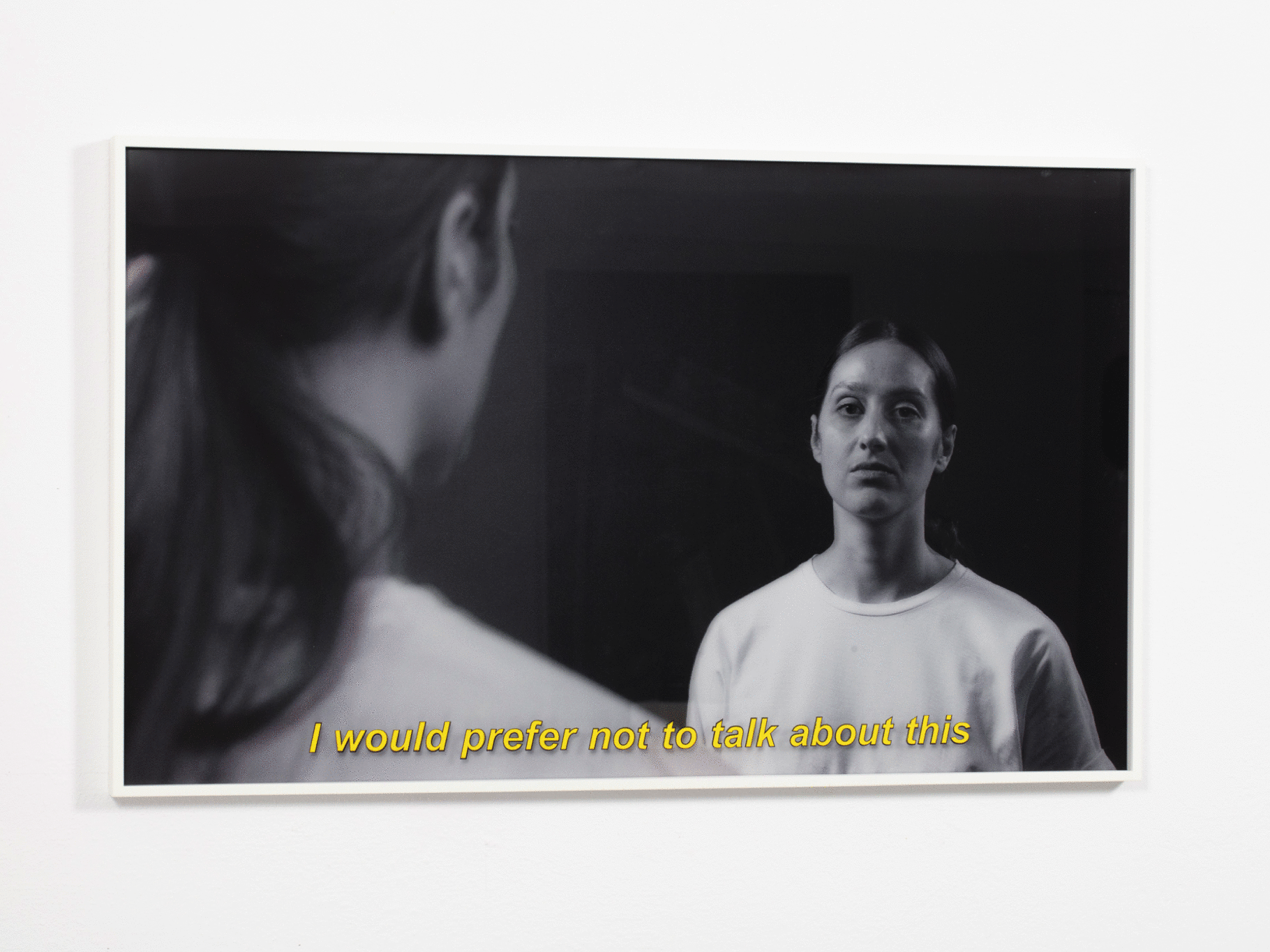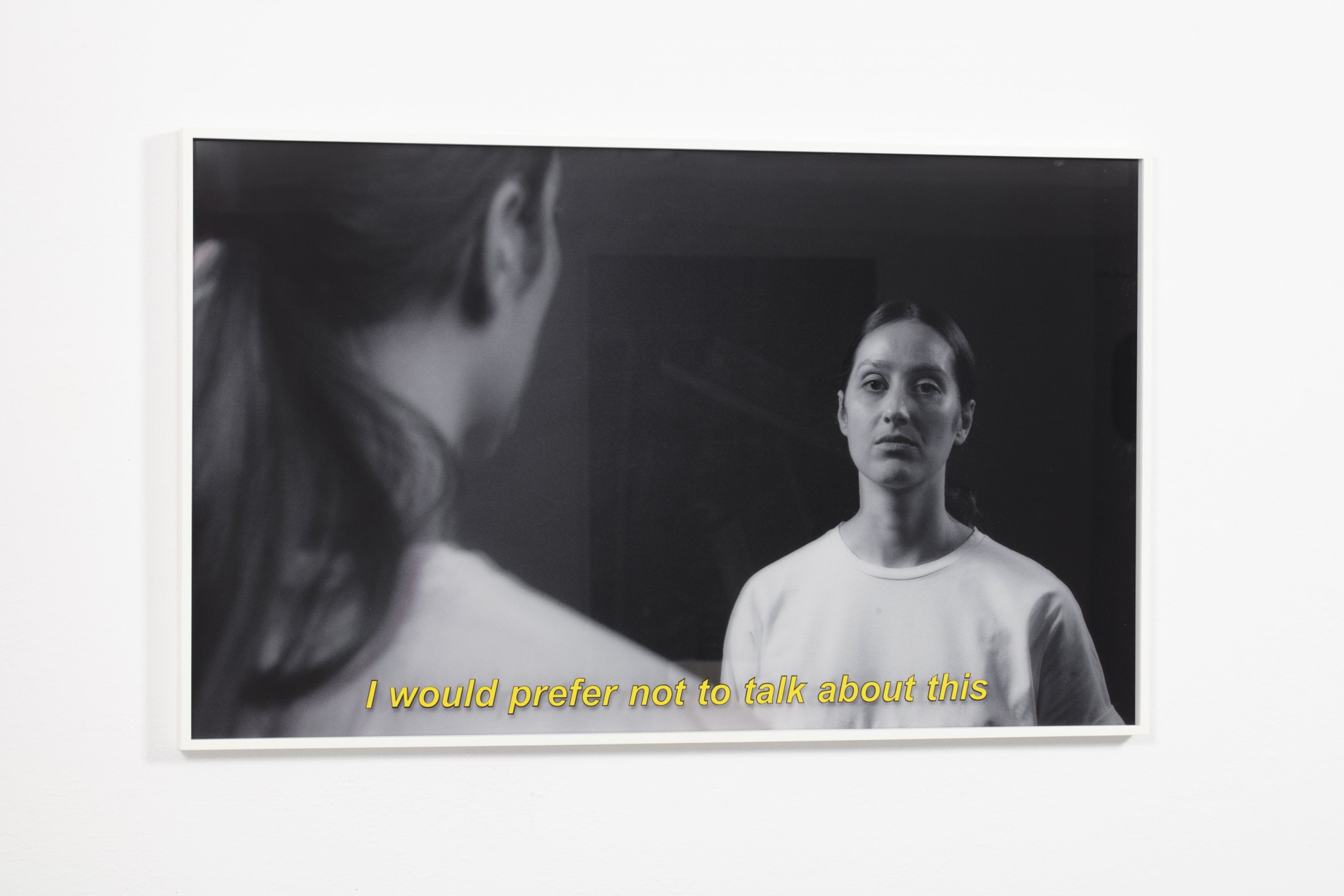Witek Orski
I would prefer not to talk about this
FSP ING 0193
The title phrase “I would prefer not to” was drawn from Herman Melville’s tale “Bartleby, the Scrivener: A Story of Wall Street” (1853). With these words, the protagonist one day refuses to perform his duties. From thenceforth, he ceases all activity, and to all orders, questions and requests—work-related or not—he responds with the same words. The philosophical dimension of the story provokes reflections on the act of refusal as a strategy of passive rebellion. Witek Orski modifies Bartleby’s catchphrase and places it in the lips of the female protagonist of his work, who “would prefer not to talk about it,” limiting herself to a telling gaze. At base, photography is a mute medium. The filmic proportions of the frame and the title included in the photo like a dialogue track directly allude to cinema images, with both motion and sound. The use of the lenticular printing technology, which involves the composition of a single image out of three different shots, creates an impression of movement. Depending on the viewing angle, the subject seated at the mirror gazes at the viewer, at her own reflection, or, lowering her eyes, beyond the frame.
Orski does not treat the protagonists of his photos as models, but more as collaborators in the creative process. The woman in the photo is the choreographer Ramona Nagabczyńska, who in her practice devotes great attention to facial expression and gaze. The choreography of the gaze photographed by Orski falls within the centuries-old tradition of the symbolic meaning of the gaze in an image—first in painting, later in photography and film.
Witek Orski
b. 1985, Warsaw
Visual artist, theoretician of photography. A philosophy graduate of the University of Warsaw, he creates photos, photographic installations, and video works. He refers to his practice as post-conceptual photography. He studies the relations between images, and is interested in the social functions of photography and its status in the field of art. The medium of the exhibition itself is also an essential tool for Orski. He arranges series of works into visual essays in which the reception of each item is meticulously designed. In 2010–2012 he was involved in the Czułość Gallery. He is a doctoral student in the Intermedia Department at the University of the Arts Poznań and a lecturer at the Szczecin Art Academy. He lives and works in Warsaw.
b. 1985, Warsaw
Visual artist, theoretician of photography. A philosophy graduate of the University of Warsaw, he creates photos, photographic installations, and video works. He refers to his practice as post-conceptual photography. He studies the relations between images, and is interested in the social functions of photography and its status in the field of art. The medium of the exhibition itself is also an essential tool for Orski. He arranges series of works into visual essays in which the reception of each item is meticulously designed. In 2010–2012 he was involved in the Czułość Gallery. He is a doctoral student in the Intermedia Department at the University of the Arts Poznań and a lecturer at the Szczecin Art Academy. He lives and works in Warsaw.
